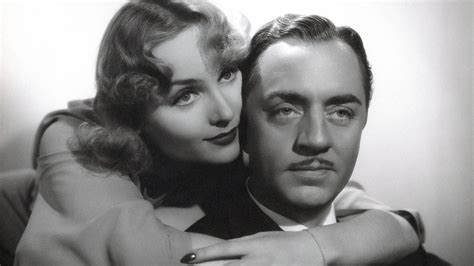How important is it to work? We encounter the reality of this question daily without thinking much about it, and maybe that’s a good thing too. If we don’t bother to answer it or even reflect on it much, it’s possibly because so many of us take work for granted and tackle our assorted tasks as a matter of daily routine.
Still, various people have waxed almost philosophical, sometimes very eloquently, about the importance of work. A good example is Sir William Osler. Doctor, a teacher, and a Canadian (hence, the knighthood), Osler taught and worked at McGill, Johns Hopkins (one of the founders of its hospital), Penn, and Oxford; regarded by many as the father of modern medical practice, we owe residency and clinical training to his reforms of medical education. Evidently, he was also a man of great, good common sense. On one notable occasion, he told his audience (students, I assume) of “the master-word . . . the open sesame to every portal, the great equalizer in the world, the true philosopher’s stone which transmutes all the base metal of humanity into gold.”
What is that master-word? Simple, Osler declared: work. “[It is] fraught with momentous consequences if you but write it on the tables of your heart, and bind it upon your forehead.” And there can be little doubt that he knew all about work from direct experience.
Harkening back to what I said earlier, most of us don’t ask why we work, except, I ought to add, at those moments that we don’t want to. Monday mornings are famous in that respect. And the older we get, which nowadays means the closer to retirement, the more we begin to think about work’s burdens and the glorious prospect of release. Some of us may wax philosophic in our own paltry ways and tell ourselves that work is some sort of curse. The little devil inside us who knows his Bible, at least, a little, might whisper seductively that work is, sure enough, a curse from no less than God Himself, the result of sin, and that therefore that retirement must almost of necessity be a foretaste of heaven.
But those who know their Bibles a bit better will shake their heads, perhaps with a rueful smile, and remind the satanic theologian that it wasn’t work itself that was the curse but the process of working toward any goal that, after the expulsion from Eden, began to involve what the King James Version called “the sweat of thy brow.” In addition to that, the results of “sweat” often will be filled with disappointment, frustration, and failure: thorns and thistles. No wonder retirement looks so good.
Notwithstanding those hard conditions, the pre-lapsarian record indicates that man was made to work, to tend a garden and do who knows what else—pave roads, erect buildings, dig canals, and even teach. (Like Billy Bigelow in the musical, “Carousel,” I figure that last occupation takes real talent although some would disagree.) A man without work would find himself permanently in a state most have experienced at one time or another, that of leaden boredom. How many retirees would have died of heart attacks had a task not come their way to get their minds and hands busy again, and offer them relief from all that relaxation?
In the famous screwball comedy My Man Godfrey (1936), the hero Godfrey Parke, a rich son from a wealthy Boston family, has hit rock bottom and lost everything, largely due to depression over an apparently failed romance. He finds himself among the down-but-still-fighting “bums” at the city dump, and, from there, to a job as a butler. As a working man, he finds new meaning in life. And when he recruits a rich friend of his, Tommy, to start a project to get his city-dump friends back to work, he says something both wise and memorable: “The only difference between a derelict and a man is a job.” Give a bum—a free bum, mind you—work, and he’ll be transformed into something approximating what God meant him to be.
Fyodor Dostoevsky saw something similar when he was a political prisoner in Omsk, Siberia, which he recounts fictionally in Notes From A Dead House. Living in cramped quarters and eating thin cabbage soup with cockroaches in it, Dostoevsky observed three interesting things. First, men needed freedom. Discomfort was nothing compared to the plain facts of incarceration, of not being able to do what one wanted to do, of being denied the under-appreciated luxury of solitude. Second, work, because it was forced, was punishment. But, he observed, give a free man an even harder task than the ones he and the other inmates performed routinely, and he will do it better and with a sense of pride. Third, when the prisoners got even a small sum of money, the very sound of coins jingling in their pockets created in them a small sense of freedom; it gave them something of their own.
Let’s put these ideas together and see what we get. A bum or a prisoner becomes a man when, first, he’s free, second, he can work, and, third, he gets paid. I hope our country, which as a result of a lot of very hard work has built a society of unprecedented wealth, has not forgotten that sequence of facts.
Very few weeks go by in which we do not hear something about new murders in Chicago or “derelict” men in Appalachia on meth. How many of those young men have been, if we’re honest about it, taught not to consider work essential to their lives? How many politicians who scoff at a welfare work requirement have failed to recognize, pace Sir William Ostler, the philosopher’s stone that easily could transform hopeless young men not so much into rich older men but into self-respecting souls?
Too many people—especially young men—don’t work or want to work today, but they must learn that work is the pith and marrow of daily living. It’s not eternal salvation, but it can make a colossal difference temporally in determining whether one is a man or a bum. Why should it be otherwise? It’s the way God made us.















My Man Godfrey is my favorite movie with William Powell. It is an extremely funny movie with serious moments that touch your heart.